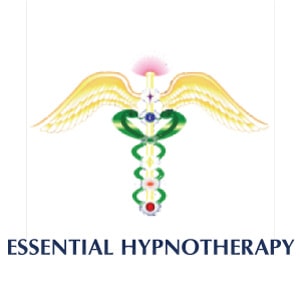PTSD
Post traumatic stress is a high level of anxiety that keeps being replayed or kept alive by the mind. Hypnosis separates the anxiety and minimizes it in a very easy and relaxed way. You will also take away with you breathing techniques in addition to your hypnosis session, and further insights as to where your trauma may be coming from, when you are not consciously aware of it, which is sometimes the case.

Understanding PTSD: What It Is and How to Deal with It
Post Traumatic Stress Disorder (PTSD) is a mental health condition that can emerge after a traumatic event. The disorder affects 7.7% of the population and can be diagnosed in children as young as four years old. PTSD symptoms include flashbacks, nightmares, anxiety, depression, guilt and avoidance behaviour. There are many treatments for PTSD, including medication or counselling with an experienced therapist.

Who can experience Post Traumatic Stress Disorder or PTSD
People who experienced Violence such as war, violence, or natural disaster
People who experienced Sexual assault
Children and adolescents exposed to violence in their community (for example witnessing urban crime)
Those who experienced accidents or other traumatic events
Persons with a history of child maltreatment (physical abuse, sexual abuse, neglect)
PTSD is common among military veterans. Research shows that about one-third of Iraq War vets have PTSD symptoms. Veterans with PTSD are at risk for substance use disorder and problems related to mood regulation like suicidal thoughts or self-harm behaviours.

However, treatment can help reduce these risks if the person gets appropriate care from qualified professionals with experience treating trauma survivors and other mental health concerns specific to combat service members, including depression, anxiety disorders such as panic attacks, manic episodes and sleep difficulties nightmares.
The traumatic event that triggers PTSD usually involves a threat to life, such as combat or natural disaster. Exposure to an extremely violent act can also trigger PTSD.
PTSD is not a sign of weakness and does not have anything to do with one’s ability to cope, but it is the mind and body’s reaction in anticipation of another possible trauma.
PTSD can make people more vulnerable to depression, anxiety disorders, substance abuse problems or other mental health issues. For these reasons, it is important to seek treatment if you are experiencing PTSD symptoms for an extended period or they interfere with your day-to-day life. There are many treatments available, including medications (antidepressants) and psychotherapy (counselling).
It’s also important to know that there is no “time limit” on when someone should start receiving help for PTSD, so don’t wait until the situation becomes unbearable before seeking out a professional opinion about what might be causing your distress.

A person with PTSD may experience a variety of symptoms, including:
Feeling on edge, irritable, angry or having difficulty concentrating. Difficulty remembering important information is also common. Sometimes memories will come back without warning in an unconnected context, like washing dishes or driving to work.
Intense negative feelings such as guilt and shame can be accompanying thoughts when triggers are experienced, which might lead to avoidance behaviour whereby they avoid anything associated with the trauma so it doesn’t happen again, such as avoiding work situations where this may have occurred, for example being unable to speak publicly about their experiences because they feel too embarrassed or ashamed. Other people might avoid different situations, such as being in groups or crowds.
Relationships with others can be affected too, and it is often found that people will withdraw from relationships, become more emotionally detached and lose interest in activities they used to enjoy doing, for example, hobbies. They may also have difficulty maintaining a healthy relationship or marriage because of their inability to trust themselves or the person they are partnered up with.
A lack of confidence both within oneself and around those close to them can lead on top of all this, which means there could be significant problems at work where time management skills, focus and creativity may be an issue. There is usually some degree of avoidance behaviour when going about day-to-day tasks like getting dressed, washing dishes etc.

For people who experience this disorder over time, symptoms may include:
- flashbacks or nightmares about the event that cause distress and problems sleeping
- repeated feelings of horror about what happened
- avoiding thoughts or places associated with the event
- emotional numbness (detachment)
- lost interest in things you used to enjoy doing like hobbies or work
- feeling on guard (hypervigilance) for other potential threats even when they aren’t there
- irritability
- trouble sleeping
Hypnotherapists can help by teaching you deep relaxation techniques to combat the symptoms of PTSD.
We include counselling sessions for the family to help them better understand what you are going through.
We also have a meditation service that will teach you techniques for getting distracted from your symptoms, so it is easier to cope with them when they occur.
The most important thing we can do is provide education and information on PTSD to make sure people know this disorder exists- even if there isn’t an official diagnosis yet.
Book a session and let us help you.
Frequently Asked Questions
NO you can think of the ‘parts’ within you as the different ‘roles’ you play, or actors on a stage that play different roles. So we all play different roles in life according to our jobs or life choices.
No it’s the same as a actor, cannot get stuck in a role, its according to the ‘roles’ that person might play at work that determines that ‘part’.
Its like changing behaviour when a person goes into a rage easily and later regrets the way they acted. Or drinks too much and feels really bad the next day. It could apply to anything you do that you want changes in, especially when it is giving you a bad wrap at work or causing you to underperform either with school results or work performance/ results.
People generally are surprised how quickly it works, far faster than general therapy because it goes directly to the heart of the issue (internal plumbing) personality and mind that give direct answers.
Kind Words
”
Book Online
Your booking will be confirmed by Tatiana manually, and you will receive an email / SMS confirmation within 24 hours. Please feel free to contact Tatiana directly if you have any questions on 0417 378 018.

